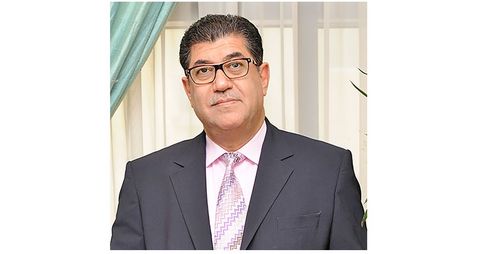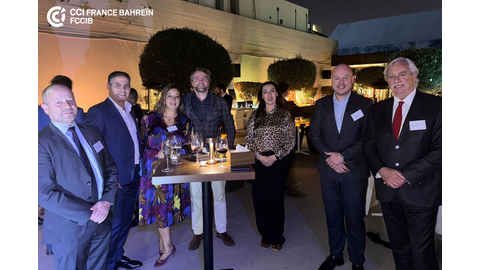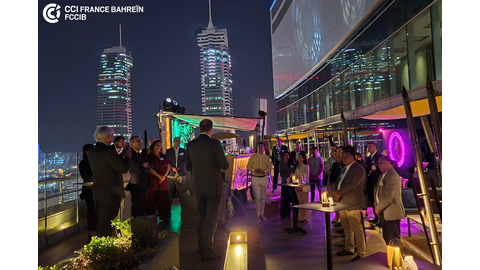Rules of engagement – the new norm...

With the relentless impact of the Covid-19 globally, businesses have been forced to reconsider their Business Continuity Plans (BCP), and Disaster Recovery Plans (DRP) over the last few weeks. This has truly become a test to an organisation’s operational risk management strategy, and most businesses who have disregarded their BCPs and DRPs over the years due to leadership level nonchalance, are now rushing to make amends in the fear of survival.
There are, however, a group of businesses, who have shown due respect and recognition in terms of value towards investing in a robust BCP/DRP within their organisation’s growth strategy. As the marketplace watches with bated breath as the crisis evolves, it is worth speculating in terms of what will be the ‘New Norm’ post the crisis, and what will be the new set of ‘Rules of Engagement’ once we manage to ‘flatten the curve’ of the Covid-19 spread globally.
At a national level in Bahrain, it has been truly inspiring to see and experience the engagement level within the government in terms of swiftly moving to ‘crisis mode’ and handling their priorities with the laser focus that was required. The stakeholder engagement process from a government/public sector level across the private sector has been nothing less than perfect in terms of targeting the immediate healthcare requirements and the support structure, followed immediately by the infrastructure set up required to support the private sector in light of the anticipated distress this pandemic will have on the national marketplace.
This has now extended into the community individual level in terms of the communications and the much-desired reinforcement that every person in the kingdom requires in terms of physical and psychological security. This includes a sense of security that comes with necessary services like healthcare, infrastructure, availability of fundamental products and services for self-preservation. This has been a great step towards the new and true Public, Private, and People Partnership model (PPPP).
Now that we have the fundamental sustenance covered at an individual level, and basic survival supported within the marketplace; what comes next? What does the future hold beyond the crisis? What is going to be the new norm, and how will it change the rules of engagement in the future?
After any crisis – natural or man-made, the core focus has been on response, rescue, reduce, recover and rehabilitate. How will this work in a crisis with a global magnitude? As with most disaster response and recovery plans; the marketplace has already taken significant steps in terms of responding to the emergency and reducing any and all risks that might impact them. They have also shown impressive signs of rescuing not just the business but also their critical stakeholders in terms of employees, customers and suppliers. However, there are very few businesses that are focused on the ‘what next’ in terms of recovery and rehabilitation.
I believe that while this is truly a tragic crisis globally, we also must remain focused on the ‘what next’ to be prepared to make the bold transitions that will be required to navigate through the complexity this crisis will cause. This is primarily because what Covid-19 initiated as a healthcare crisis at a global level, will also leading to the crippling of the financial system and the GDP at a national level which will instigate a domino effect leading towards a global financial crisis. The marketplace is already feeling the impact from the last 10 weeks in terms of uncertainty and economic stability. It is at these moments that leaders step up with ‘resilience’.
Resilience will need to be the guiding star that helps leaders and future leaders look beyond the critical short-term liquidity and solvency challenges into the long-term opportunity to not just survive but thrive. How do we change the narrative within the marketplace in the post crisis stage?
How do we remain ‘resolute’ post crisis in terms of ‘what is our purpose’ as a business, and how can we remain determined in the face of the adversity caused by the crisis? As businesses within the community, we have a responsibility beyond the success of the marketplace, a responsibility that we need to support the communities we live and operate within.
There is no history of a business or a business leader that has succeeded sustainably in a community ridden by poverty and despair. This means we have a responsibility as a critical stakeholder in the PPPP model, and in how we can support the recovery within the marketplace and community post crisis.
An impact at such a global scale has truly jarred all our beliefs around what we believed was the norm. What we once ‘took for granted’ as our organisation structures – the infrastructure, our preferences, policies, processes, behaviours and expectations; and even our access to people within our stakeholder groups like employees and clients – are now wanting in confidence.
A crisis of this scale truly reveals our vulnerabilities as an organisation, but it also offers us opportunities to ‘re-engineer’ our foundations. In the past 10 weeks businesses and many business leaders (including myself), have come to understand that we are never too old to learn, and how technology can be leveraged effectively to overcome some of the fundamental barriers posed by this crisis.
This leads to the thought that should we rethink how we ‘re-engineer’ our businesses in terms of policies, processes, people, structures, behaviours, and expectations, based on the efficiencies technology affords us as a significant part of defining the new norm.
Risk management has also been a critical learning curve during the last 10 weeks, and maybe will need to take a higher priority in the business strategy as we re-engineer the future norms. Organisations that have faced the largest impacts have also been the ones who have diluted their efforts towards organisational risk management in terms of market risk, credit risk, liquidity risk and operational risk. Risk management plays a strategic role within an organisation’s business and growth strategy and is the true safety net for the organisation and its leadership during a moment of crisis. Unfortunately, some organisations or leaders don’t survive beyond a crisis to be able to instil the value of this lesson.
As a business leader within this community, I’m personally optimistic to say that we will not just survive post crisis, but will also once again thrive as a community, marketplace and nation. My optimism is fuelled by the confidence provided by the government in the moment of peril; the support provided by the marketplace in terms of being considerate and the organisations that are sharing their technology-based products and services to help facilitate effective social-distancing and remote-working; the perseverance and patience exhibited by my people within my organisation; and the compassion and consideration shown by the community in terms of remaining compliant in the best way possible to reduce the impact from the spread of the virus.
At this point, as we move towards the two weeks of precautionary measures to avoid the spread of Covid-19, I would like to sincerely thank all the doctors, nurses and healthcare workers for their relentless efforts and compassion in helping the people in Bahrain. I would also like to thank all the businesses and individuals within the kingdom, who help the community by staying open, and who are supporting families with their cleaning services, home deliveries, and even transportation services.
We understand and respect your sacrifices, and your contributions during this moment of uncertainty by staying at work, so others can stay at home to stop the spread. Thank you, and the nation’s recovery cannot be achieved without your combined and collaborative support. For the rest of Bahrain, stay safe, and stay home to stop the spread. These two weeks are crucial to our recovery, and we truly hope to come out of it stronger and more resilient.
The author is managing partner of KPMG Fakhro, Bahrain.
Source: http://www.gdnonline.com/Details/788082/Rules-of-engagement-–-the-new-norm


